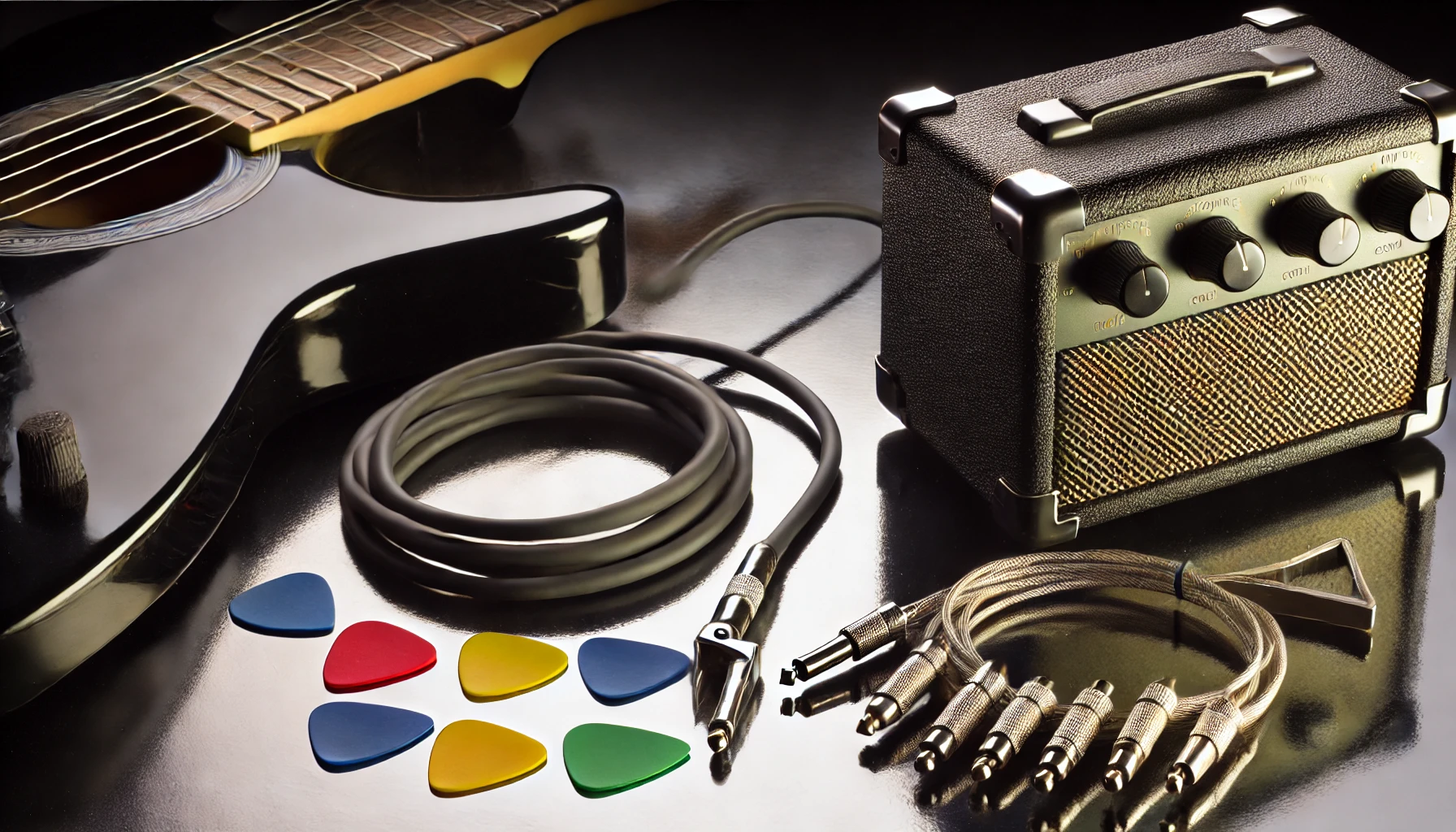
The Bare Electric Guitar Essentials
First time electric guitar players don’t really need a lot to get started. At its most basic, you’ll need the following:
- An electric guitar – Cost: $199-470. Squire, (Fender) Yamaha, and Epiphone (Gibson) have some excellent options for the beginner. Used options can help you stretch your money if you’re on a budget. Learn more about buying your first electric guitar here.
- Amplifier – Cost: $120-245. You’ll need an amplifier for your guitar. I recommend the Positive Grid Spark series. The Spark app gives the series the ability to replicate an enormous variety of amplifier options used in various genres of music. For beginners, you’ll get the chance to experiment with your amp settings without having to buy an amp for a specific kind of music you’re experimenting with. The Spark Go is the smallest and most affordable option, at about $120 new. It’s small and compact with a built-in headphone jack. Other options include the Spark Mini and Spark 40 with larger speakers. If budget is an issue, try checking out used amp options. You can often find good quality used practice amps beginning around $50.
- Pick(s) – Cost: $5-15. You’ll need a set of inexpensive picks. Get a set with a variety of widths. Strumming practice will be much easier with thin, flexible picks.
- Instrument cable – Cost: $8-25. You’ll need an instrument cable to connect your guitar to an amplifier.
- Tuner app – Cost: $0. Tuner apps can be found for free on the Apple App store or on Google Play. Many times, the tuner apps will include helpful features like a metronome, or guitar chord charts. I use the Fender Tune app, but you can many other options online.
Altogether, it’s possible to build your beginner guitar setup for anywhere from $324 to 600. If you shop around, you can get started with used equipment for as little as $160.
Nice to Have Electric Guitar Tools & Extras
The list above will get you started, but many of the items below will make your guitar journey easier and more convenient.
- Guitar Strap – Cost: $8 and up. I use an Ernie Ball guitar strap. Wider ones are recommended to help spread the weight of your guitar. It matters, especially if you have a Les Paul or larger solid body style guitars.
- Capo – Not something you’ll need right away, but
- Guitar Stand – Cost: $16 and up. Get one and avoid damaging your guitar. You’ll graduate from leaving your guitar in the corner very soon.
- Guitar Wall Hanger – Cost: $16 and up. If you’ve got small kids or pets, This is the alternative to a floor level guitar stand.
- Clip on tuner – Cost: $20 and up. A clip-on tuner is convenient addition to your guitar toolkit.
- Guitar String Winder & Clipper – Cost: $11. I got the D’Addario one, but you’ll be fine with a tool like it. Sooner or later, you’re going to have to change your guitar strings. This handy little tool will make your life easier. You don’t have to get one right away, but eventually, you’ll come to appreciate it.
Resources
I don’t make any money with these recommendations. Feel free to shop at your favorite option.
- Guitar Center – The largest guitar store chain in the US. They sell online and through their retail stores.
- Sweetwater – America’s largest online guitar retailer
- Reverb – An online music marketplace similar to eBay. You find retailers and private sellers all over.
- Amazon – Amazon doesn’t need an introduction, but guitar shoppers should be warned that Amazon has a terrible search function. The searches at Guitar Center and Sweetwater are far better tuned to the needs of guitar shoppers. More often than not, your search results are going to get bombarded with advertising from competitor products.
- Walmart – Surprisingly, Walmart is now selling a variety of guitars through the selling partners at their online store.
